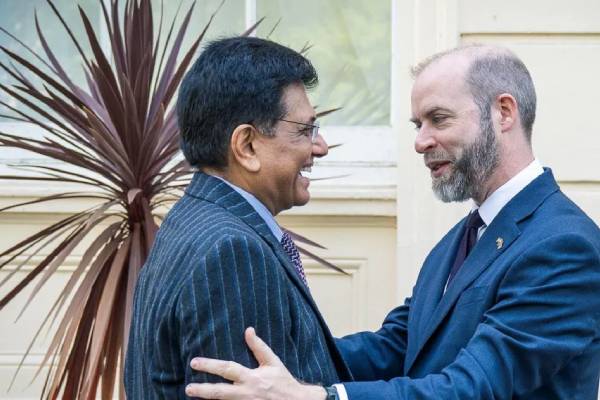The UK and India have agreed a trade deal that will make it easier for UK firms to export whisky, cars and other products to India, and cut taxes on India’s clothing and footwear exports.
The deal comes after three years of on-off negotiations. It does not include any change in immigration policy, including towards Indian students studying in the UK, the UK said.
Prime Minister Sir Keir Starmer described it as a “landmark deal” which would boost growth and “deliver for British people and business”.
Last year trade between the UK and India totalled £41bn and was already forecast to grow, but the government said the deal would boost that trade by an additional £25.5bn a year by 2040.
India’s prime minister, Narendra Modi, described the deal as an historic milestone that was “ambitious and mutually beneficial”.
The pact would help “catalyse trade, investment, growth, job creation, and innovation in both our economies”, Mr Modi said in a post on social media platform X.
Once it comes into force, which could take up to a year, UK consumers are likely to benefit from the reduction in tariffs on goods coming into the country from India, the Department for Business said.
That includes lower tariffs on: clothing and footwear, foodstuffs including frozen prawns, jewellery and gems.
The government also emphasised the benefit to economic growth and job creation from UK firms expanding exports to India.
UK exports that will see levies fall include: gin and whisky, aerospace, electricals and medical devices, cosmetics.
UK food products such as lamb, salmon, chocolates and biscuits
Tariffs on gin and whisky, which was a key sticking point in negotiations previously, will be halved to 75%, with further reductions taking effect in later years.
The deal includes provisions on the services sector and procurement allowing British firms to compete for more contracts.
UK Business Secretary Jonathan Reynolds said the benefits for UK businesses and consumers were “massive”.
Mr Reynolds met his Indian counterpart Piyush Goyal in London last week to put the final touches on the deal.
The British government said the deal was the “biggest and most economically significant” bilateral trade agreement the UK had signed since leaving the European Union in 2020.
UK Business Secretary Jonathan Reynolds and India’s Minister of Commerce and Industry Piyush Goyal met in London last week to finalise the deal
The deal includes a three-year exemption on the social security paid by Indian employees working in the UK, on short-term visas.
This agreement, known as the Double Contribution Convention, designed to ensure social security contributions are not made in more than one country, was one of the elements India had pushed for during negotiations.
India is forecast to become the world’s third-largest economy in a few years.
US President Donald Trump’s tariff campaign has focused minds in other countries on how to respond, and increased the impetus to strike trade deals.
The UK is also a high priority trading partner for Prime Minister Modi’s government, which has an ambitious target to grow exports by $1 trillion by 2030.
Rain Newton-Smith, chief executive of business lobby group, the CBI, welcomed the deal saying it provided a “beacon of hope amidst the spectre of protectionism” following Trump’s wave of tariffs.
UK businesses saw “myriad” opportunities in the Indian market, she added.
Allie Renison, from communications firm SEC Newgate, and a former government trade adviser, said the deal was potentially “transformational” due to India’s size, growth rate and relatively high existing barriers to accessing its market.





